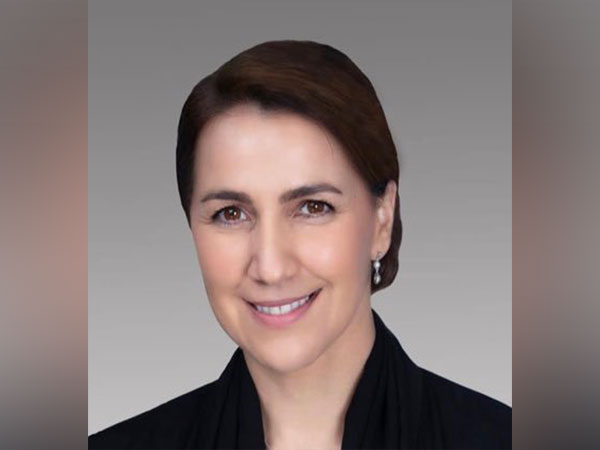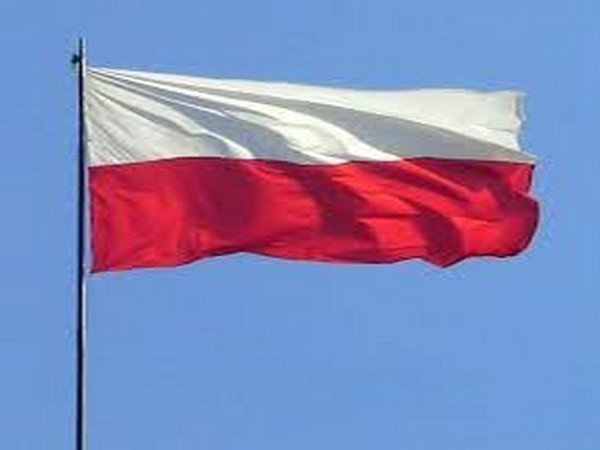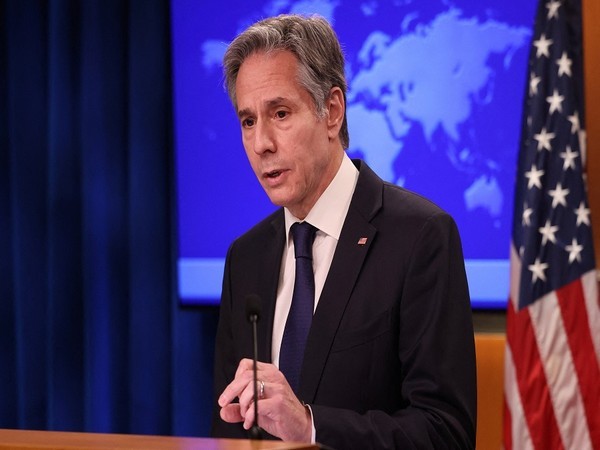Mariam Almheiri highlights innovative and sustainable nature-based solutions
Nov 11, 2023
Umm Al Quwain [UAE], November 11: The latest in a series of high-level national Majlis sessions being held in the lead up to COP28 convened today at Al Ittihad Hall in Umm Al Quwain, organised by the UAE Ministry of Climate Change and the Environment (MoCCAE) as part of the "COP28 ChangemakersMajlis" initiative.
The initiative consists of eight sessions held ahead of COP28 at the end of November, bringing together local climate leaders and innovators from the government, the private sector, industry, education and other key sectors.
After the recent launch of the UAE's new UAE Net Zero 2050 Strategy, which lays out a detailed governmental action plan for achieving climate neutrality by 2050, invited Majlis guests gathered to discuss the crucial role nature-based solutions play in tackling climate change.
Mariam bint Mohammed Almheiri, Minister of Climate Change and the Environment, chaired the Majlis. The event was attended by Engineer Ahmed Ibrahim Obaid Al Ali, Director-General of the Municipality of Umm Al Quwain; Ali Ahmed Ali Abu Ghazin, Chairman of Sharjah Fish Resources Authority; and Ahmed Al Hashmi, Executive Director of Terrestrial and Marine Biodiversity Sector at Environment Agency - Abu Dhabi.
The attendees comprised leaders from MOCCAE, including Mohammed Saeed Al Nuaimi, Acting Under-Secretary of the Ministry; Dr. Mohammed Salman Al Hammadi, Assistant Under-Secretary for Biodiversity and Marine Life Sector; Mohammed MousaAlameeri, Assistant Under-Secretary of the Food Diversity Sector; Othaiba Saeed Al Qaidi, Acting Assistant Under-Secretary for the Sustainable Communities Sector; and Shaikha Ahmed Salem Al Ali, Acting Assistant Under-Secretary for the Regions Sector.
Addressing the participants, Mariam Almheiri said, "Nature-based solutions are a powerful tool for mitigating climate impacts. Umm Al Quwain stands as a compelling example of how these solutions can be strategically studied, implemented and advanced in support of a more sustainable future.
"Our national plan to plant 100million mangrove trees by 2030 is wholly supported here in Umm Al Quwain, and I thank all those involved in prioritising mangrove restoration efforts to preserve and expand the coastal forests, which play a pivotal role as vital natural carbon sinks. "As we move into a new era of bold, tangible action driven by the UAE Net Zero 2050 Strategy, we must continue to harness the power of nature and the wisdom of our forebears in mitigating the effects of climate change."
The UAE actively employs natural systems such as mangroves and coral reefs to serve as a natural barrier against rising sea levels, both reducing the risk of coastal erosion and safeguarding vulnerable coastal communities.
Almheiri stressed, "Ensuring the long-term success of nature-based solutions requires cooperation, research and effective policy implementation as we must protect these ecosystems.
"We must ask ourselves in anticipation of COP28 and in our ongoing fight against climate change, how we can amplify local solutions and commit to removing barriers to achieving a sustainable future," the minister concluded.
Ahmed Ibrahim stressed the vital role played by municipalities in promoting nature-based solutions in the UAE, especially, in Umm Al Quwain. He pointed out the necessity to involve the community in these efforts, such as their participation in planting mangroves, and expanding cooperation with schools to involve students in nature-preserving activities and to include the UAE's climate action strategies within the school curricula. He said that climate action requires time and effort to deliver stronger awareness among the next generations.
Ahmed Alhashmi said that Abu Dhabi has a strategic approach to preserving nature, highlighted by its focus on expanding mangrove planting with 23 million mangroves planted so far. The technology of planting trees using drones has also been introduced.
He said Abu Dhabi's efforts are not limited to protecting nature, but also contributing economically, pointing to the success of extracting honey from mangrove forests. The success of these projects requires expanding research, and funding modern technology to contribute to the success of various initiatives and projects. Scientific research supporting nature-based solutions within research centres and universities must also be strengthened in addition to increasing academic specialisations to create more environmental job opportunities.
The session was moderated by Dr. Mohammed Salman Al Hammadi, Assistant Under-Secretary for the Biodiversity and Marine Life Sector at MOCCAE. He asked the participants to share examples of successful nature-based solutions implemented in Umm Al Quwain and the UAE that have contributed to climate resilience and environmental sustainability.
The attendees then considered the challenges and opportunities, in terms of implementing nature-based solutions to address climate change and protect the environment. They then discussed the economic and social benefits associated with nature-based solutions in the UAE - and how these solutions contribute to the well-being of local communities.
The session concluded with a request to the participants to share what plans and strategies are in place, or planned, regarding nature-based solutions in the UAE, especially in Umm Al Quwain, to meet the country's sustainability and climate goals. The importance of increasing funding for the climate sector to preserve nature was reviewed, such as efforts to reduce emissions and achieve sustainable food security.
It also reviewed how modern technology can be used to preserve nature and increase forest cover, which are the main habitats for many living organisms. The participants also discussed providing the opportunity for SMEs to play a pivotal role in this field. The Majlis discussed designing an integrated system that brings together decision-makers, entrepreneurs, and relevant economic and financial institutions to launch businesses that support the country's efforts to preserve nature and biodiversity.
The Majlis also highlighted how to integrate green spaces with urban cities by expanding the area of gardens and parks where community members can enjoy enhanced air quality.
This COP28 ChangemakersMajlis series highlights the UAE's model of present, open leadership as an approach to problem-solving, and underlines the goals of COP28, to be an inclusive platform for strong, collaborative and collective action.
Source: Emirates News Agency








